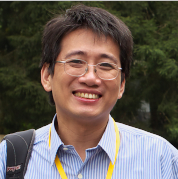The design and learning analytics of minimized collaborative scientific problem-solving activities considering cultural differences
Summary of work Researchers and educators consider CPS as one of the core competencies of the 21st century. However, students often fail to solve a problem as they do not coordinate with peers to reflect upon their CPS activities. To help teachers develop collaborative activities to foster CPS ability, my work in the host institute focused on two main parts: the development of collaborative science learning activities and the analysis of active learning practice, specifically the collaborative learning practice, in the new ALCs. Regarding the collaborative science learning activity, my work has implemented twenty CPS simulations for CPS learning activities, both in Chinese and English, and has established a collaboration network between multiple countries including the European Union, Spain, Thailand and Singapore. Regarding the analysis of active learning practices, the work in the host institution and my prior works were integrated to form a Pedagogy, Space, and Technology (PST) model of space and technology design in supporting collaborative learning on campus which was featured by the IEEE Technical Committee on Learning Technology as one of the keynote speeches of The 18th IEEE International Conference on Advanced Learning Technologies in Bombay. Background It has been stressed by social constructivists that in-depth learning occurs


